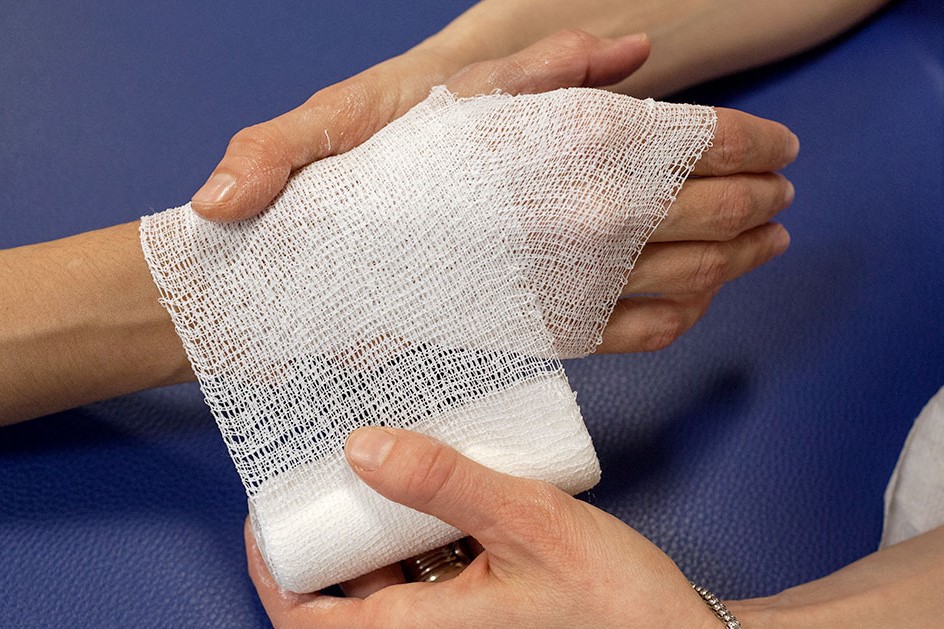
First Aid: How to bandage a hand / VIDEO
When you have hurt your hand, you can use a roller bandage to hold a dressing in place, or to support a sprained wrist. Find out what to do
Hand bandage:
- Wrap bandage around wrist, across back of hand and around fingers in a figure of 8.
- Secure end around wrist.
- Check circulation.
What to do in the case of bandaging a hand:
- Start by putting the end of the bandage on the inside of their wrist, below the bottom of their thumb. Wrap the bandage around their wrist, twice.
- Then wrap the bandage from the inside of their wrist, diagonally across the back of their hand up to the nail of their little finger. Then pass the bandage straight across the front of their fingers.
- Pass the bandage diagonally across the back of their hand to the outside of their wrist. Then wrap under their wrist.
- Repeat this figure of eight until only the finger tips are still peeking out. When wrapping, only cover two thirds of the previous layer, so that with each new layer you’re covering a third of new skin.
- When you’ve covered the hand, wrap the bandage around the wrist twice and fasten the end using a safety pin, sticky tape or by tucking it in.
- Once you have finished check their circulation. You can do this by pressing a finger nail on the hand for five seconds until it goes pale. If the colour doesn’t come back within two seconds, the bandage is too tight so you’ll need to loosen it and do it again. Keep checking their circulation every 10 minutes.
Bandage a hand, watch the video:
Read Also:
Emergency Live Even More…Live: Download The New Free App Of Your Newspaper For IOS And Android
First Aid: How To Use A Compression Bandage
Treating Injuries: When Do I Need A Knee Brace?
Wrist Fracture: How To Recognise And Treat It
Carpal Tunnel Syndrome: Diagnosis And Treatment
Knee Ligament Rupture: Symptoms And Causes
Lateral Knee Pain? Could Be Iliotibial Band Syndrome
Knee Sprains And Meniscal Injuries: How To Treat Them?
Stress Fractures: Risk Factors And Symptoms
What Is OCD (Obsessive Compulsive Disorder)?
RICE Treatment For Soft Tissue Injuries
P.O.L.I.C.E. Vs R.I.C.E.: The Emergency Treatment For Acute Injuries
How And When To Use A Tourniquet: Instructions For Creating And Using A Tourniquet
Bone Callus And Pseudoarthrosis, When The Fracture Does Not Heal: Causes, Diagnosis And Treatment
First Aid, Fractures (Broken Bones): Find Out What To Look For And What To Do
Tourniquet And Intraosseous Access: Massive Bleeding Management
Signs And Symptoms Of Shock: How And When To Intervene
Blood Pressure: New Scientific Statement For The Evaluation In People
Will Lower Blood Pressure Reduce The Risk Of Heart And Kidney Diseases Or Stroke?
Rapid Blood-Pressure Lowering In Patients With Acute Intracerebral Hemorrhage
Brain Hemorrhage: Causes, Symptoms, Treatments
First Aid: How To Stop Emergency Bleeding


